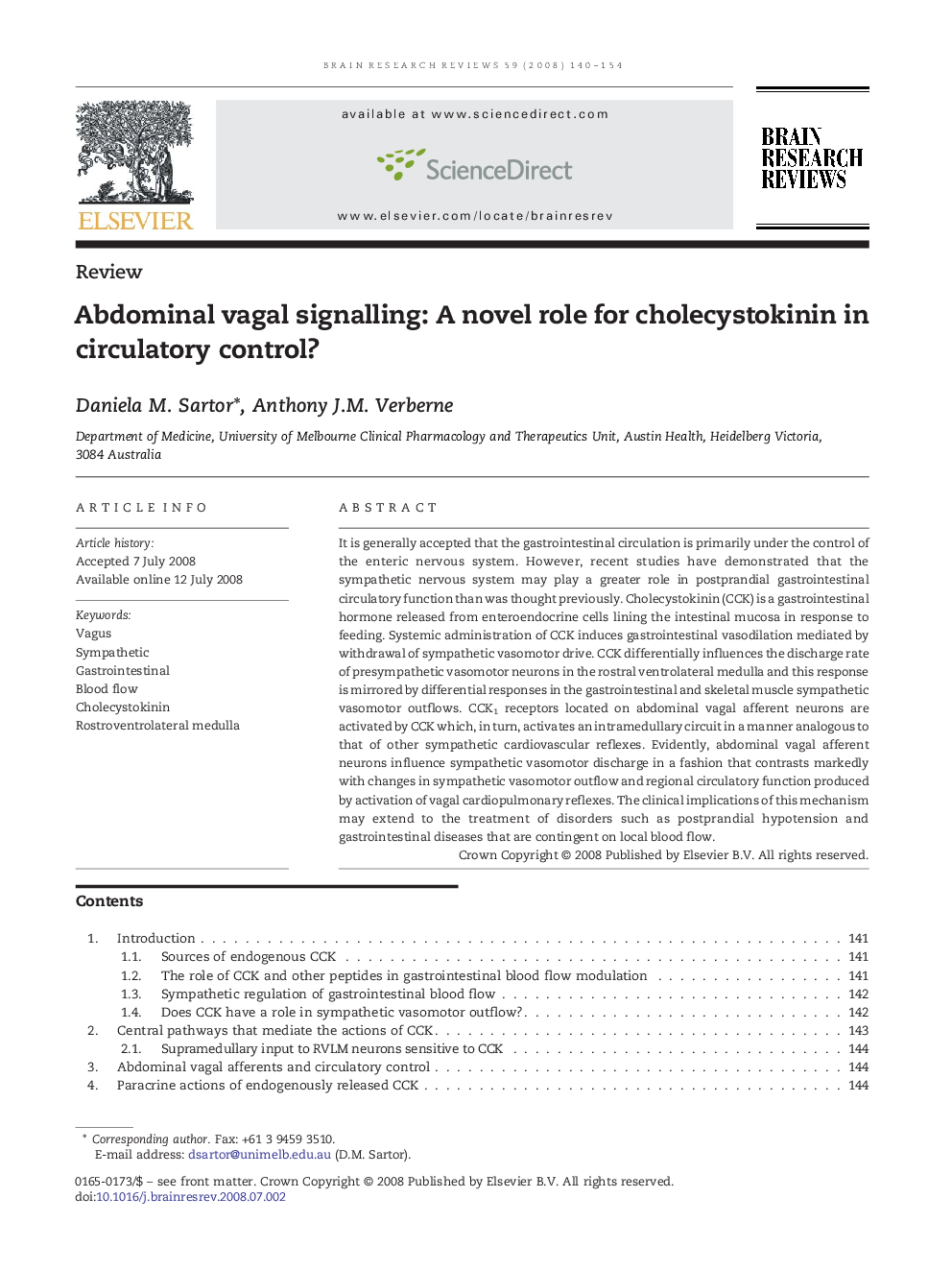| Article ID | Journal | Published Year | Pages | File Type |
|---|---|---|---|---|
| 4333792 | Brain Research Reviews | 2008 | 15 Pages |
Abstract
It is generally accepted that the gastrointestinal circulation is primarily under the control of the enteric nervous system. However, recent studies have demonstrated that the sympathetic nervous system may play a greater role in postprandial gastrointestinal circulatory function than was thought previously. Cholecystokinin (CCK) is a gastrointestinal hormone released from enteroendocrine cells lining the intestinal mucosa in response to feeding. Systemic administration of CCK induces gastrointestinal vasodilation mediated by withdrawal of sympathetic vasomotor drive. CCK differentially influences the discharge rate of presympathetic vasomotor neurons in the rostral ventrolateral medulla and this response is mirrored by differential responses in the gastrointestinal and skeletal muscle sympathetic vasomotor outflows. CCK1 receptors located on abdominal vagal afferent neurons are activated by CCK which, in turn, activates an intramedullary circuit in a manner analogous to that of other sympathetic cardiovascular reflexes. Evidently, abdominal vagal afferent neurons influence sympathetic vasomotor discharge in a fashion that contrasts markedly with changes in sympathetic vasomotor outflow and regional circulatory function produced by activation of vagal cardiopulmonary reflexes. The clinical implications of this mechanism may extend to the treatment of disorders such as postprandial hypotension and gastrointestinal diseases that are contingent on local blood flow.
Related Topics
Life Sciences
Neuroscience
Neuroscience (General)
Authors
Daniela M. Sartor, Anthony J.M. Verberne,
